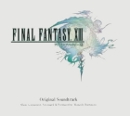
|
|
Neko Zamurai Original Soundtrack :: Review by Chris
 |
Album Title: | Neko Zamurai Original Soundtrack |
| Record Label: | Pony Canyon | |
| Catalog No.: | PCCB-00373 | |
| Release Date: | May 19, 1999 | |
| Purchase: | Buy at CDJapan |
Overview
This is a classic case of being attracted to an album due to the artist, not the game or origin. Neko Zamurai isn't a well-known game in the slightest, probably due to Human Entertainment's poor promotion campaign. It appears to be a parody of all those historical games out there since it is set in traditional Japan yet features a samurai cat as the protagonist. Nonetheless, its soundtrack release reflects the debut of Masafumi Takada as a solo composer before he went on to create soundtracks like The Silver Case, Killer7, and No More Heroes. Most tracks are written in a traditional Japanese style, but there is generally a light-hearted vibe throughout and fusions with both classical and contemporary styles.
Body
The opening theme reflects the type of music to expect from the Neko Zamurai soundtrack. Takada certainly sets the tone of traditional Japan with the unusual tonality and primitive percussion, yet also maintains a surprisingly upbeat tone and introduces some electronic influences. As the compoition develops, the instrumentation shifts towards shakuhachi wails and there are some beautiful interludes along the way. The overall work certainly captures the green rustic landscapes of old Japan while also fitting a tongue-in-cheek feline adventure. It's quite resolute, but there is a hint of cheekiness too.
The pentatonic melody from this theme recurs throughout the soundtrack in different moods and environments. For example, "Birthplace" and "Descendents" emphasise the lyricism of the theme at the start of the adventure. In contrast, "Nekomata" reflects the cattier side of the theme with its humorous percussion backing and "War" presents it within the context of a bombastic orchestral action theme. The recurrence certainly adds an element of continuity and melodiousness to the soundtrack, though can sometimes grow repetitive to the extent that many tracks sound similar and formulaic.
Indeed, the collective soundtrack feels very repetitious overall even independently of the repeated theme. Although there are contrasts, the sheer majority of the tracks use the same instrumental set with the shakuhachi leads and low-key backing. They are mixed in a way that sounds so laid-back and smooth that it's difficult to maintain attention. Takada even ensures most tracks fade-in to one and another. There are a few that deviate, such as "Marriage" with its shamisen focus or "Admiration" with its daring saxophone lead, but they are few and far between. Others such as "Daily", "Trivial", and "Machinations" serve their subsidiary purposes in context, but are so superficial that they can only be described as filler outside it.
The best additions to the soundtrack are probably those at the conclusion. After a barriage of action themes, Takada offers a final boss theme fitting for the game. He lets the orchestral instrumentation take the lead for once to represent a firm march while shakuhachi gently support and variations on the main theme. It's far from spectacular, but feels just right nonetheless. Finally, "Otogiri Jubee" recapitulates the main theme within a much more contemporary format. Masafumi Takada really demonstrates his own personality here with the jazzy semi-acoustic guitar riffs and piano use while still keeping things somewhat integrated with the game. This soothing fusion is certainly the biggest highlight of the soundtrack.
Summary
In Neko Zamurai, it's possible to see unique aspects of Masafumi Takada's musicality emerge for the first time. For example, he reuses memorable leitmotifs through the score, offers plenty of contemporary and traditional fusions, and demonstrates a flair for carefully adapting his music into the scenario fo the game. That said, a lot of the soundtrack doesn't seem particularly ambitious and more like a quick variation on a theme, leaving the collective whole somewhat tiresome and uninspiring. There are a few gold tracks here, particularly the opener and closer, but the full soundtrack is difficult to sustain in one listen.

